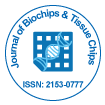Research Article
Association of Genetic Variants of VEGF gene with Gastric Carcinoma Risk
| Hong-Zhen Xia1, Qiang Wu1, Wei-Dong Du1,2*, Yi Liu3, Gang Chen4, Feng Yang1, Fu-Sheng Zhou4, Xian-Fa Tang4, Hua-Yang Tang4, Jian Ruan2, Yi-Lin Chen4, Liang-Dan Sun4 and Xue-Jun Zhang4 | |
| 1Department of Pathology, Anhui Medical University, Hefei, Anhui 230032,China | |
| 2Key Lab of Genome Research of Anhui Province, Anhui Medical University, Hefei, Anhui 230032, China | |
| 3Department of Surgery, The First Affiliated Hospital of Anhui Medical University, Hefei, Anhui 230032, China | |
| 4Key Laboratory of Dermatology, Anhui Medical University, Ministry of Education, China, Hefei, Anhui 230032, China | |
| Corresponding Author : | Dr. Wei-Dong Du Department of Pathology Anhui Medical University Meishan Road 81, Hefei Anhui 230032, China Tel: +86551 516 1002 Fax: +86 551 516 1016 E-mail: weidongdu@hotmail.com |
| Received September 26, 2010; Accepted November 11, 2011; Published November 22, 2011 | |
| Citation: Xia HZ, Wu Q, Du WD, Liu Y, Chen G, et al. (2011) Association of Genetic Variants of VEGF gene with Gastric Carcinoma Risk. J Biochip Tissue chip S1:005. doi:10.4172/2153-0777.S1-005 | |
| Copyright: © 2011 Xia HZ, et al. This is an open-access article distributed under the terms of the Creative Commons Attribution License, which permits unrestricted use, distribution, and reproduction in any medium, provided the original author and source are credited. | |
Abstract
To date, few association analyses with regard to gene variants and expression of vascular endothelial growth factor (VEGF) in gastric carcinoma (GC) have been reported. We hypothesized the variants might also affect susceptibility to GC. To evaluate the correlation of VEGF variants with risk and clinicopathological characteristics of this disease in China, we detected fourteen single nucleotide polymorphisms (SNPs) of VEGF gene in 311 patients with gastric carcinoma and 425 age and gender-matched controls by using Sequenom iplex. We investigated expression of VEGF in combination with cyclooxygenase-2 (COX-2) in 238 tissues samples of the cases by tissue microarray (TMA) and immunohistochemistry (IHC). There were no significant differences in genotype, allele and haplotype distributions of the 14 VEGF SNPs between the cases and the controls. However, we found that there were significant clinicopathological correlations of the rs3024994C/T with gender, the rs3025021C/T with tumor size, the rs3025039C/T with tobacco smoking, the rs3025030G/C with tumor location, tobacco smoking and alcohol drinking (P<0.05, respectively). A/A genotype (P=0.050, OR=0.39, 95%CI=0.15-1.00) and A allele (P=0.024, OR=0.64, 95%CI=0.43-0.94) of the rs833052 significantly reduced the VEGF expression and T allele of the rs3025007 increased the VEGF expression (P=0.017, OR=1.70, 95%CI=1.10-2.61) when compared to the C allele of both the variants, respectively. The VEGF expression displayed a significant association with COX-2 (rs= 0.178, P=0.006). We concluded that none of the 14 SNPs of VEGF gene was significantly associated with the susceptibility to GC. Both VEGF and COX-2 showed close correlations with invasion and progression in advanced GC.

 Spanish
Spanish  Chinese
Chinese  Russian
Russian  German
German  French
French  Japanese
Japanese  Portuguese
Portuguese  Hindi
Hindi